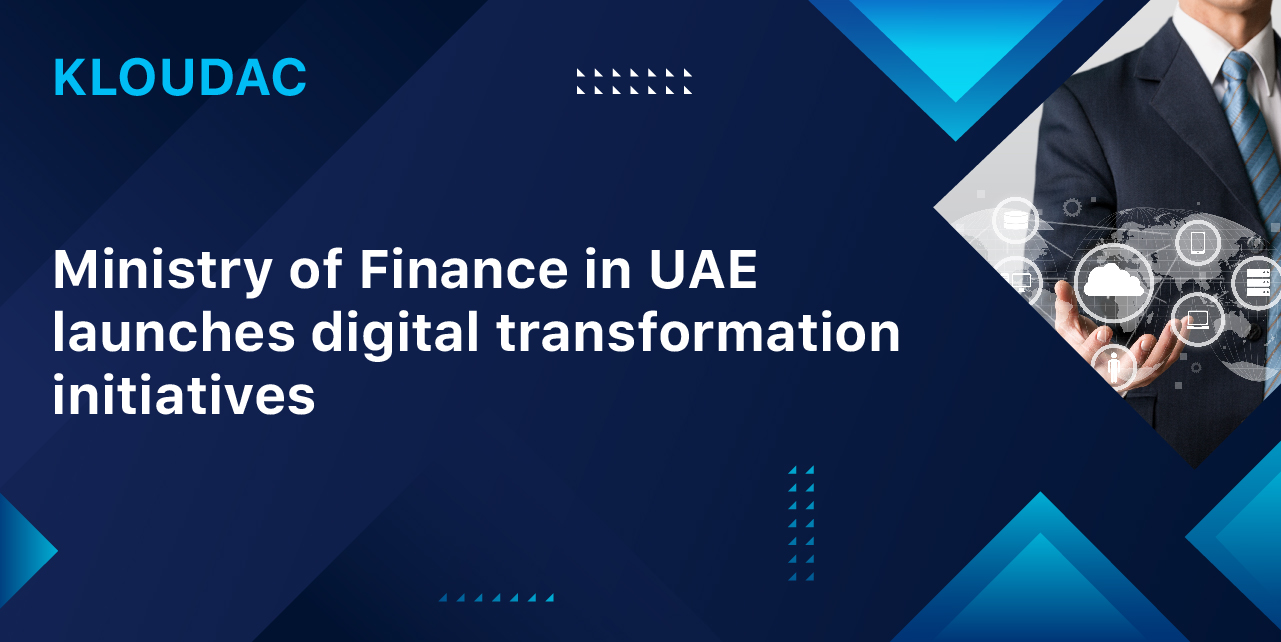In an era where digital technology is transforming the way governments operate, the United Arab Emirates (UAE) is taking significant steps to stay ahead of the curve. The Ministry of Finance in the UAE has launched a series of digital transformation initiatives in 2023 aimed at modernizing and streamlining its financial and administrative processes. These initiatives signal a commitment to enhancing government services, increasing efficiency, and fostering economic growth in the region.
The UAE’s Digital Transformation Journey
The UAE has been at the forefront of digital transformation in the Gulf region for several years. The government has consistently demonstrated its commitment to harnessing technology to improve public services, reduce bureaucracy, and stimulate economic development. In 2023, the Ministry of Finance is further advancing this vision with a series of strategic initiatives.
Key Digital Transformation Initiatives
The Ministry presented a range of initiatives, including the Ministry of Finance Metaverse, a generative AI platform, and the Federal Asset Tracking System. They emphasized the importance of enhancing customer service through AI technologies.
The Ministry also discussed its efforts to develop digital services and adopt the latest technologies, focusing on improving the stakeholder experience. They highlighted the Services 2.0 initiative, focusing on services like supplier registration and support in accounting systems. Additionally, they introduced the Suggestions Platform and the Report on Whistleblowing Cases service to enhance transparency and integrity.
Smart Financial Services
The Ministry of Finance has rolled out a range of smart financial services designed to simplify financial transactions for individuals and businesses. These services include online tax filings, e-invoicing, and digital payment solutions. This digitization of financial processes not only makes it easier for residents and businesses to interact with the government but also helps reduce paperwork and administrative overhead.
Blockchain Integration
Blockchain technology is being leveraged to enhance transparency and security in financial transactions. The UAE government has recognized the potential of blockchain to revolutionize record-keeping, asset management, and financial regulation. This initiative aims to strengthen investor confidence and reduce the risk of fraud and errors in financial systems.
Data Analytics and AI
The Ministry of Finance is heavily investing in data analytics and artificial intelligence (AI) to better understand economic trends, optimize financial resource allocation, and improve fiscal management. AI-driven algorithms are being used to identify tax evasion and streamline budgeting processes. Predictive analytics can assist in making data-driven decisions, leading to more effective fiscal policies.
Digital Identity and Authentication
To enhance security and convenience, the UAE government is introducing a robust digital identity and authentication system. This system will provide secure access to government services, reducing the need for multiple login credentials and simplifying administrative processes. It also contributes to safeguarding sensitive financial data.
Economic Diversification
The Ministry of Finance is using digital tools to support economic diversification efforts in the UAE. By leveraging technology, they aim to identify and promote emerging sectors that have the potential to reduce the nation’s reliance on oil revenue and drive sustainable economic growth.
E-Government Platforms
The UAE is unifying its government services into a single, user-friendly online platform. This integration will make it easier for citizens and businesses to access government services and receive real-time updates on financial matters.
Benefits of the Initiatives
The digital transformation initiatives undertaken by the Ministry of Finance in the UAE in 2023 offer numerous benefits:
Improved Efficiency: Digitizing financial and administrative processes reduces bureaucratic hurdles, enabling quicker and more efficient services.
Enhanced Transparency: The use of blockchain technology enhances transparency and trust in government financial transactions.
Cost Savings: By reducing paperwork and automating routine tasks, the government can cut costs and allocate resources more effectively.
Economic Growth: Supporting economic diversification and offering a digital ecosystem conducive to business development will stimulate economic growth and attract investment.
Better Compliance: Digital tools and analytics help identify non-compliance with tax regulations, ensuring a fair and just tax system.
KLOUDAC Accounting Firm Dubai, UAE
The UAE’s Ministry of Finance’s digital transformation initiatives in 2023 represent a significant step forward in the country’s commitment to modernize and streamline its financial and administrative systems. By embracing the latest technology, the government aims to improve service delivery, increase efficiency, and foster economic growth. These initiatives will not only benefit the government but also make the lives of UAE residents and businesses easier as they navigate the financial landscape in a rapidly evolving digital world. The UAE’s efforts in this domain position it as a model for other nations looking to embark on their digital transformation journeys. KLOUDAC specialists are updated about the upcoming trends and how they can be utilized for the growth of businesses.
